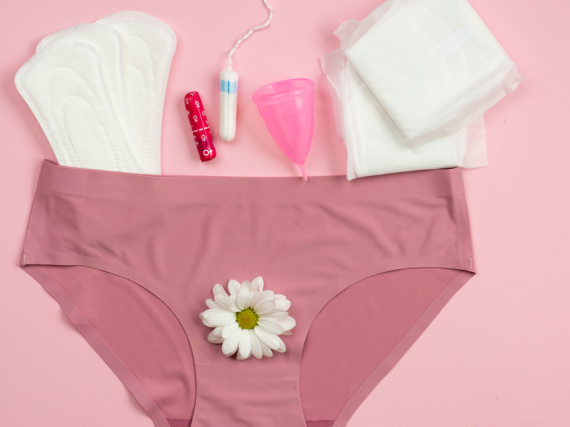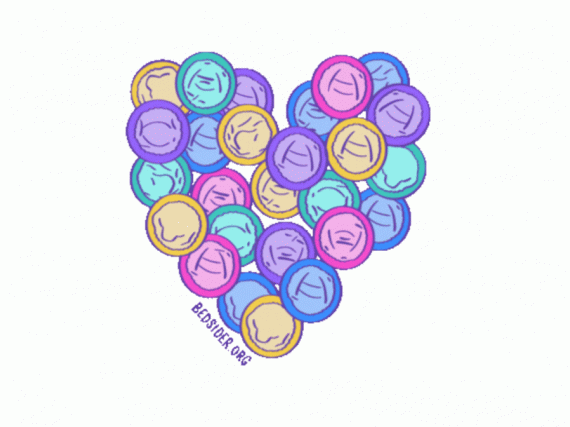Birth Control Is For More Than Just Preventing Pregnancy
Birth control is the real MVP when it comes to preventing pregnancy, with 99% of women taking some form of birth control in their lifetime. Birth control has helped people advance their educational and professional goals and plan their lives on their own terms. Often when thinking of birth control, people think its sole purpose is pregnancy prevention, but birth control does so much more than that. Guttmacher Institute found that more than half (58%) of all birth control pill users rely on the method at least in part for purposes other than pregnancy prevention. And, over 1.5 million women take birth control for non-contraceptive options to help their overall health and well-being.
Birth control can help people take back their life and their well-being in so many ways. Here are 5 non-contraceptive reasons and benefits for taking birth control:
1. Regulating periods and relieving PMS/PMDD symptoms:
From irregular periods to painful and heavy periods, birth control can help regulate and ease symptoms. Hormonal birth control methods such as the pill or IUD can help you regulate your period monthly or stop your period all together (yes, you can skip your period all together!). Birth control can help lighten the flow and ease PMS symptoms such as severe cramps, breast soreness, bloating, etc.
2. Controlling acne
During your period, hormone fluctuations can make some individuals acne worse. Hormonal birth control can help manage acne, with many forms of birth control being FDA approved to treat acne. Not all forms of hormonal birth control may work, so make sure to talk to a provider about testing different options until you find the one that’s right for you and your skin.
3. Managing and preventing medical conditions
Birth control has a variety of health benefits for certain medical conditions. If you’re one of the 36 million Americans who suffer from migraines, some birth control methods, such as the pill or IUD, can help regulate or even eliminate menstrual migraines by reducing the drop in hormone levels prior to and during your period that leads to a migraine. However, if you experience migraine with aura, talk to your health care provider as you’ll want to steer clear of combination hormone contraceptives.
Many people suffer from an excruciating condition called endometriosis, a condition where tissue grows outside of your uterus instead of inside it. Some types of birth control such as the pill, patch, shot, and IUD can help elevate and manage symptoms of endometriosis such as pain and heavy period bleeding by regulating and/or eliminating your period. It's important to remember that birth control can help relieve the pain, but it’s not a treatment for endometriosis, itself.
4. Reduce your risk of cancer and cysts
Polycystic ovary syndrome (PCOS) makes a period worse than annoying, it’s severely painful. For those who do not want to become pregnant, treating PCOS often involves taking hormonal birth control to manage symptoms of PCOS like painful periods, acne, and excess body hair. The pill, the patch, and the ring work by preventing ovulation which reduces the number of cysts on the ovary. The pill reduces your risk of ovarian cancer by at least 40%—and the longer you use it, the more it helps!
5. Bleed on your own terms
Whether you’re about to go on a beach vacation, have an event coming up, or just don’t want to bleed, birth control allows you to bleed when you want to. With some types of the pill, you can decide if you want to have your period that month or not, and with other pills—as well as IUDs, the ring, and the patch—you can skip your period all together.
As you can see, birth control helps people get on top of their well-being in more than one way. If you’re experiencing any of the conditions above or thinking of getting on a birth control for contraceptive or non-contraceptive option, talk to your health care provider to find the option that works best for you. We want everyone to love their method enough that they shout, “Thanks, birth control!””
Curious to explore methods? Check out Bedsider’s method explorer to find a method that’s right for you and the clinic finder for a provider near you.
P.S. Unfortunately, not everyone has access to birth control and face many barriers to attain it. Currently, more than 19 million women live in contraceptive deserts, counties in which they lack reasonable access to a health center that offers the full range of contraceptive methods.
Do you want to help a person get a month or years' worth of birth control? Consider donating to BCBenefits, our Contraceptive Access Fund.



